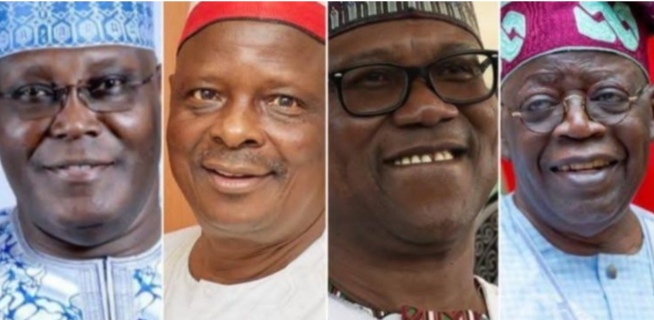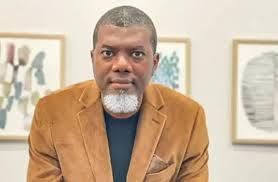Ahead of the 2027 general election, the immediate-past National Vice Chairman of the All Progressives Congress (APC), Salihu Moh Lukman, has called on former Vice President Atiku Abubakar, former Governor Peter Obi, former Governor Rabiu Musa Kwankwaso, former Governor Rotimi Ameachi to team up in order to defeat the ruling party.
Others listed in the proposed merger include former Vice President Yemi Osinbajo, former Governor Nasir El-rufai, former Governor Rauf Aregbesola, former Governor Kayode Fayemi and former Ibikunle Amosun, among other political leaders.
Lukman, in a statement released Sunday in Abuja, titled: “Future of Democracy in Nigeria” said building the kind of united front capable of moving Nigerian democracy forward require selflessness on the part of Nigerian political leaders.
While lamenting the current situation of the country, the former Director General of the Progressives Governors Forum (PGF) said situation whereby APC as the ruling party in Nigeria promised to provide the needed leadership to fight corruption but the party has legitimised higher level of corruption in the country and also legitimising the phenomenon ‘state capture’ virtually at all levels.
According to Lukman, given the way the failure of APC has widen the country’s fault lines, it is important that considerations for developing united political front painstakingly aspire to unite political leaders across the country. For instance, the way, the people of the South-East rejected the APC since 2015 must be redressed. Any new united political front should gain some measure of high acceptability in virtually all parts of the country.
“The requirement for high acceptability from all sections of the country should humble all political leaders in the country, especially Alh. Atiku Abubakar and Mr. Peter Obi not to exploit the need for such a united front by imposing their Presidential ambitions. In the same vein, other APC leaders such as Prof. Osinbajo, Chief Amaechi, Dr. Fayemi, Mal. El-Rufai, Sen. Amosu, etc. (APC political orphans) who in one way or the other have ambitions to become Nigeria’s President must bury such ambitions, at least not during the negotiation to form the united political front.
“We must appeal to all political leaders in Nigeria, across all the political parties in the country to commit themselves in forging a new atmosphere of political unity in the country based on selfless disposition, forgiving the misgiving of the past and national reconciliation.
“If APC and President Asiwaju Tinubu are to have any considerable electoral strength in 2027 it will be on account of the current division, which characterise Nigerian politics and make it impossible for any form of cooperation by political leaders. Absence of cooperation among political leaders is responsible for the rising incidences of bad governance in the country and is eroding the basis Nigerian nationhood. Once democracy cannot respond to challenges facing citizens, Nigeria as a sovereign entity will be irrelevant and questionable.
“Nigerian opposition political leaders, including the orphaned leaders of APC who are excluded in the APC government of President Asiwaju Tinubu, notably Alh. Atiku Abubakar, Mr. Peter Obi, Sen. Rabiu Musa Kwankwaso, Prof. Yemi Osinbajo, Chief Rotimi Amaechi, Dr. Kayode Fayemi, Sen. Ibikunle Amosun, Mal. Nasir El-Rufai, Ogbeni Rauf Aregbesola, etc. must unite to rescue Nigeria. Whether producing the united political platform can be achieved through merger of existing parties, forming a new party or rebranding any of the existing parties is a decision that can be determined if leaders agree to come together and unite.
“First thing first, political leaders must recognise that rescuing Nigeria from its current slippery slope is about teamwork and partnership. It is only through conscious and committed teamwork that we can rebuild important democratic institutions such as political parties, legislatures, electoral bodies, and other institutions, which could hold elected officials accountable. Beyond holding elected officials accountable, it is only when we have strong political parties with leaders who run affairs of the party based on provisions of party constitutions that processes of leadership selection can be sanitised in the country.
“Political leaders in Nigeria, notably Alh. Atiku Abubakar, Mr. Peter Obi, Sen. Rabiu Musa Kwankwaso, Prof. Yemi Osinbajo, Chief Rotimi Amaechi, Dr. Kayode Fayemi, Sen. Ibikunle Amosun, Mal. Nasir El-Rufai, Ogbeni Rauf Aregbesola, etc. must answer the question as to whether they want to allow their narrow political ambition to continue block the path for the democratic development of Nigeria? Or why shouldn’t they aspire to register their name as political leaders who were able to rise to the occasion in Nigeria’s hour of national need by coming together to forge a united political front, which could transformed Nigeria’s democracy and reverse the phenomenon of ‘state capture’ that produced ‘small corrupt groups’ of used ‘government officials’ who are appropriating ‘government decision-making to strengthen their own economic positions’?”
The former APC chieftain described as unfortunately, “given the advanced stage of ‘state capture’ at Federal level, most political leaders, including the leading opposition leaders such as Alh. Atiku Abubakar, Mr. Peter Obi and Sen. Rabiu Musa Kwankwaso are all operating in isolation to one another. APC leaders such as former Vice President Yemi Osinbajo, Chief Rotimi Amaechi, Dr. Kayode Fayemi, Sen. Ibikunle Amosun, Mal. Nasir El-Rufai, Ogbeni Rauf Aregbesole etc. who are more like political orphans on account of being excluded from the President Asiwaju Tinubu government have been pushed to the peripheral edges of Nigerian politics.”
He added that there were some indicative political activities taking place around some of these political leaders, but “it has not graduated to the level of commitment to build the kind of strong political parties capable of threating the APC and President Asiwaju Tinubu, which is needed to guarantee the future of Nigerian democracy.”
He stated further that “With ‘state capture’, democratic institutions such as the legislature, electoral bodies and political parties are emasculated. Even traditional institutions are increasingly being reduced to appendages of the executive arm of government. The executive arm of government is becoming more and more the problem of Nigerian democracy, undermining the capacity of elected leaders and governments to respond to challenges facing citizens. With high propensity to subvert laws that compels accountability, most Nigerian elected leaders operate with the corrupt mindset of ‘state capture’ thereby appropriating public resources and assets and converting them to private use.
“Getting out of such a mess will require strong political parties, which are lacking in contemporary Nigerian politics. How can we get political leaders to commit themselves towards building strong political parties? Whether Nigerian democracy can have the kind of future, which could enable elected representatives and governments to competently and effectively respond to challenges facing Nigerians is contingent on the ability of political leaders to produce strong political parties.
“So long as the aspirations of Nigerian politicians is only limited to winning elections and producing new elected leaders, Nigerian democracy will be unable to reverse the phenomenon of ‘state capture’, which is now in the advanced stage of taking over the Federal Government.”




























